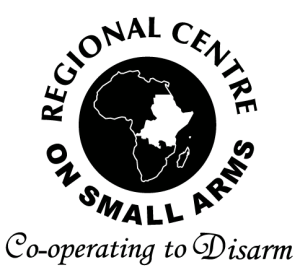These instruments establish the international norms and standards that RECSA’s work is aligned with, positioning our regional efforts within the broader global arms control architecture.
UN Programme of Action on SALW (UN PoA) (2001)
The UN PoA is the primary global political framework to prevent, combat, and eradicate the illicit trade in SALW. Adopted by all UN Member States, it provides a comprehensive roadmap for action at national, regional, and global levels — covering stockpile management, marking and tracing, and international cooperation. RECSA serves as a regional implementing mechanism for the UN PoA in the IGAD and wider Eastern Africa region, translating its global commitments into concrete national action plans, capacity-building programs, and cross-border cooperation initiatives.


International Tracing Instrument (ITI) (2005)
This politically binding instrument complements the UN PoA by establishing specific requirements for the timely and reliable identification and tracing of illicit SALW. It obligates states to ensure weapons are uniquely marked, records are maintained, and tracing requests are cooperatively fulfilled. RECSA operationalizes the ITI by facilitating regional tracing cooperation, training national points of contact, harmonizing record-keeping systems across member states, and acting as a regional clearinghouse for tracing requests — significantly enhancing the speed and success rate of investigations into illicit arms flows.


UNTOC Firearms Protocol (2001)
As the only legally binding global instrument targeting the criminal dimensions of illicit firearms, the Firearms Protocol requires states to criminalize illicit manufacturing and trafficking, implement marking and record-keeping, and prevent diversion. RECSA supports member states in aligning national legislation with the Protocol, trains law enforcement and prosecutors on its application, and fosters regional judicial and police cooperation to dismantle transnational arms trafficking networks — turning legal obligations into actionable regional security outcomes.


The Arms Trade Treaty (ATT) (2013)
The ATT establishes the highest common international standards for regulating the international trade in conventional arms, including SALW. It requires states to assess risks of arms being used to violate human rights or international humanitarian law. RECSA assists Member states in building ATT-compliant export/import control systems, conducts risk assessment training for licensing authorities, and promotes regional harmonization of criteria — ensuring that global norms on responsible arms transfers are embedded in regional practice and policy.


Global Framework for Ammunition (GFA) (2023)
The GFA is the first dedicated global framework for the safe and secure through-life management of conventional ammunition, addressing diversion risks and unplanned explosions. With 15 actionable objectives, it promotes safety, accountability, and sustainability. As a regional champion of the GFA, RECSA leads the adaptation and rollout of its objectives across Eastern Africa — conducting national ammunition management assessments, supporting physical security upgrades, and integrating GFA principles into regional defense and security sector reform agendas.


International Ammunition Technical Guidelines (IATG)
The IATG provides the globally recognized technical standard for safe and secure ammunition management — covering storage, transport, accounting, and disposal. RECSA embeds the IATG into all its regional training, advisory missions, and stockpile assessments, ensuring that security forces and national authorities across Eastern Africa implement internationally validated best practices — reducing explosion risks, preventing diversion, and saving lives.


UN General Assembly Resolution 79/239 on AI in the Military Domain (2024)
“RECSA’s work is aligned with the broader, evolving global arms control architecture. While focused on established instruments like the UN PoA and ATT, it must also remain cognizant of emerging threats. The UN General Assembly’s 2024 Resolution on AI in the Military Domain (A/RES/79/239) underscores the need for continuous adaptation of international norms. RECSA positions itself to monitor such developments, ensuring its regional capacity-building efforts remain relevant to future security challenges, including the potential weaponization of new technologies.”


